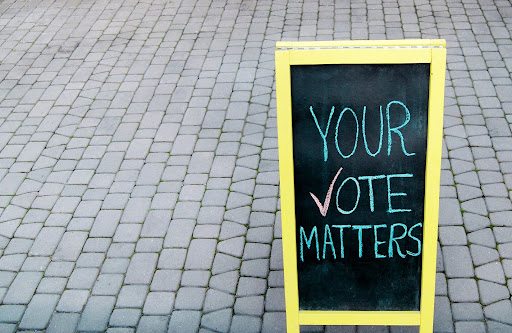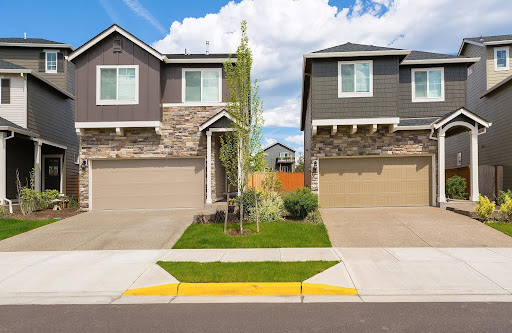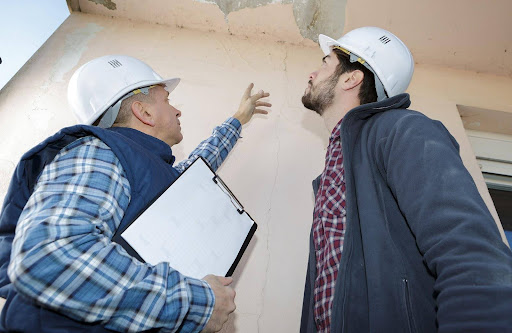Does Your Community Need HOA Insurance?

HOA insurance is a valuable form of financial protection, especially when faced with liability or property damage. Unfortunately, most associations are unaware of the need for insurance and continue without sufficient protection.
What is HOA Insurance?
An HOA master insurance policy is the most common coverage for homeowners associations. This policy protects HOAs against insurance claims, stepping in to cover the cost of expenses related to property damage and general liability.
Insurance for Single-Family HOAs vs Insurance for Condos
Condo associations are physically structured differently from single-family HOA communities. Single-family homes tend to be detached, so they do not share walls, roofs, or plumbing systems. However, condominiums share walls between units, with shared roofs and pipes running in between. As such, the insurance needs of a condo association tend to differ from those of an HOA.
The Importance of Homeowners Association Insurance
Insurance is critical to the financial protection of any homeowners association. It ensures that an HOA or condominium association will not have to tap into its funds or spend as little of its own money as possible when faced with property damage or general liability.
For instance, if a fire burns down the playground, an HOA can file a claim with its insurance provider to cover the replacement cost. If someone slips and hurts themselves on icy pavement in a common area, insurance can cover the cost of legal fees and settlement if they decide to sue.
Without HOA insurance, an HOA board must use its operating budget or reserve funds to pay for the damages. This would severely interfere with the annual budget and deplete its reserves, causing operational hitches and taking away essential funding from other budgetary line items.
As a result, the HOA board would need to compensate for the deficit. This often involves turning to homeowners for additional funding through a special assessment. Depending on the damages, this special assessment could be astronomical, putting more financial burden on the homeowners. Other options include raising regular dues significantly or taking out a loan—both would still result in extra expenses for homeowners.
Is HOA Insurance Required?
Whether or not an HOA is required to carry insurance depends on state laws and the governing documents.
In some states, associations are statutory required to purchase insurance. Homeowners associations in California must carry insurance and include a summary of their policies in the annual budget report, as per Civil Code Section 5300. Similar laws exist in other states.
Apart from state laws, an HOA’s governing documents will also outline the needs and requirements for insurance. If state law does not require insurance, an HOA’s governing documents likely will. In addition to the requirement, the CC&Rs and bylaws usually dictate the type of coverage and amount of insurance an HOA must have.
HOA Insurance vs. Homeowners Insurance
It is important to understand that an HOA insurance master policy differs from homeowners insurance. HOA insurance protects the association itself, while homeowners insurance protects individual homeowners and their properties.
In single-family communities, the HOA’s insurance policy will likely not cover damage to or liability arising from individual homes. For those, homeowners must purchase their policies. In condo communities, though, the condo’s master policy may cover the shared elements, such as walls between units and roofs.
What Does HOA Insurance Cover?
Coverage will ultimately depend on the type of insurance policy an HOA purchases. That said, HOA insurance generally covers physical property damage and general liability.
Property Damage
Property damage coverage will cover the cost of repairs or replacement for physical damage to an HOA’s common areas. These include clubhouses, parks, playgrounds, swimming pools, and more.
In condo associations, property damage coverage extends to the exterior of the condo building and covers the cost of repairs and replacement for shared interiors such as basements and stairwells.
It is essential to note that this policy usually doesn’t cover general wear and tear. Property damage coverage applies more to damages arising from natural disasters, storms, fires, and vandalism. Insurance providers typically offer separate coverage for earthquakes.
General Liability

General liability coverage will cover the cost of legal fees and damages for lawsuits against the HOA after someone gets hurt on common property. For example, if visitors slip and injure themselves on a slippery sidewalk in the parking lot, they may sue the HOA. In this case, general liability can cover legal fees and settlement costs.
Lawsuits can be costly and time-consuming. With general liability coverage, an HOA can save a hefty sum of money and avoid charging special assessments to cover the expenses.
What HOA Insurance Doesn’t Cover
While insurance is beneficial to any community, it does not cover everything. Here are some of the things that a typical HOA insurance policy will not cover:
- Property damage to individual homes or units
- Liability for injuries that occur on individual homes or units
- Flood insurance coverage
- Earthquake insurance coverage
- Damage to personal belongings
- Stolen personal belongings (whether in common areas or individual homes/units)
- Property damage or liability caused by a person
- Claims that go over the limitations of the policy
Bare Walls vs. Walls-In vs. All-In Condo Master Policy
Insurance usually comes in the form of a master policy for single-family HOAs. For condo associations, though, there are three insurance policies to choose from bare walls, walls-in, and all-in.
Bare Walls Coverage
Bare walls coverage only covers the fixed items within the condo units. These include appliances, cabinets, wall coverings, countertops, and wall coverings, among other things. This type of coverage also does not cover any upgrades the owner might make. Instead, the bare walls policy only covers replacement and repairs up to the drywall.
Due to its limited coverage, this is the cheapest form of insurance for condo associations. The association does not insure the interior of an owner’s unit, except for unfinished walls, floors, and ceilings.
Moreover, if a flood or fire occurs in a unit, bare walls coverage does not pay for improvements. These include appliances, cabinets, wall coverings, fixtures, interior partitions, and floor coverings. The owner’s insurance policy will have to cover the cost of these items.
Some condo associations settle for bare walls coverage due to its low cost. However, some lenders will not approve loans if the association only has limited coverage.
Walls-In Coverage
Also known as single-entity coverage, this type covers all non-personal property items inside condo units. These include appliances, cabinets, wall coverings, countertops, and floor coverings. However, any upgrades the owner makes do not fall under this coverage.
All-In Coverage

Also known as all-inclusive coverage, this type of coverage covers all non-personal property items and any upgrades the owner makes. For example, if the owner changes the countertops from marble to granite, the all-in coverage can pay for it. Due to the extensive coverage, the all-in policy is the most expensive.
How Much Does HOA Insurance Cost?
The type and coverage of an HOA’s insurance policy will determine its annual cost or premium. Additionally, different HOA insurance companies may offer various price points in places where insurance costs are not highly regulated. As such, it is a good idea for an HOA or condo association to shop around before deciding on a provider and policy.
In general, though, HOA insurance can cost between $200 and $500 per month. Some more comprehensive policies can go beyond that, up to $1,000 or more.
Many HOA boards let the cost of insurance stop them from purchasing the best one that meets their needs. However, it is essential to remember insurance’s role in an HOA’s financial protection, especially in the long run.
Other Types of HOA Insurance
Apart from a master policy, there are other types of insurance an HOA should consider purchasing. These include the following:
- D&O Insurance. This protects board members from personal liability. If they’re sued for decisions made in their capacity as HOA leaders, this policy covers legal defense costs. It’s essential to attract qualified individuals to serve on the board without fear of personal financial risk.
- Workers’ Compensation. HOAs with employees or contractors may require workers’ compensation insurance. This coverage provides medical benefits and wage replacement to injured workers. Depending on local laws, it’s often mandatory and helps the HOA avoid costly legal fees from workplace injury claims.
- Umbrella Liability. Umbrella liability insurance provides additional coverage when claims exceed the limits of standard policies. It’s an extra layer of protection for severe incidents, such as accidents involving large sums of money. This type of insurance ensures the HOA won’t face financial ruin from a major lawsuit.
- Crime and Fidelity. This protects the HOA from theft, fraud, or embezzlement losses. This policy can cover the loss if funds are stolen by board members, employees, or even third parties. It’s especially important for associations that handle large sums of money.
- Flood Insurance. If the HOA is in a flood-prone area, flood insurance is crucial. Standard property insurance policies typically exclude flood damage, making separate flood coverage necessary. It can protect the community from significant financial losses after a natural disaster.
- Earthquake Insurance. In regions prone to earthquakes, this coverage is vital. Like flood insurance, earthquake damage is not covered under most property policies. Earthquake insurance helps repair or rebuild structures affected by seismic activity, ensuring the HOA’s financial stability.
All Things Considered
Every community should have HOA insurance, whether or not state laws or their governing documents require it. Insurance plays a critical role in protecting an HOA’s financial interests. Additionally, it helps ensure that homeowners don’t shoulder additional financial burdens when the unthinkable happens.
Personalized Property Management offers HOA management services around Southern California, including assistance with insurance management. Call us at 760-325-9500 or email us at info@ppminternet.com for more information!
RELATED ARTICLES:


























